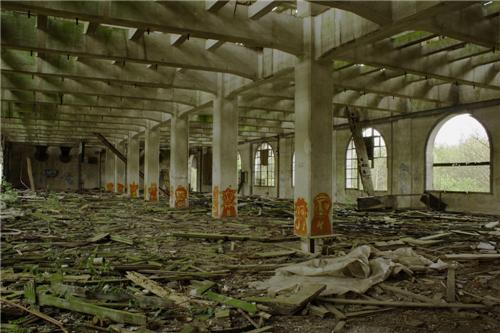So what is the Second Law of Thermodynamics? Usually it is summed up as entropy. It means that over time a closed system will equilibrate. The best example would be the entire universe, that over time all of the materials will spread out and over billions of years we expect the entire universe to be just an evenly distributed open space of material. No organized stars or planets, just material spread across the universe.
Other less perfect examples, but easier to understand and still convey the principle are kids' rooms where over time things tend to be evenly distributed throughout the room and not organized on shelves and in closets. Part of the reasons for this is the energy that it takes to organize items in a specific order. My desk where I am writing this was clean this week. I cleaned it up. Over the week, I have placed business cards and papers on the desk and now it is a little less organized.
Other less perfect examples, but easier to understand and still convey the principle are kids' rooms where over time things tend to be evenly distributed throughout the room and not organized on shelves and in closets. Part of the reasons for this is the energy that it takes to organize items in a specific order. My desk where I am writing this was clean this week. I cleaned it up. Over the week, I have placed business cards and papers on the desk and now it is a little less organized.
As things change, it becomes difficult to maintain the status of the system. I know that it feels like things should stay constant. We put in controls. And they fail. We fix things. And they break. We improve processes. And errors still occur. We automate things. And things still fail. It is just a natural process that for some reason in the evolution or make-up of who we are, we almost have to discover that entropy occurs. It must be related to time and unable to remember the future and selectively remembering the past.
I think about some of these things as I talk with partners and customers at Bern Medical. We usually like to think that we have a system to prevent errors and we have a process to find them. We would like to think that we don't make mistakes. That our digital systems never fail us. I suppose this is why it helps to offer our services risk free and we take the downside risk of not finding anything.
Problem is, we are fighting against the Second Law of Thermodynamics. Among everything else that we have to fight against in business and life this one will never go away. It is as least the first part of death and taxes. As sure as the law of gravity will hold us to the earth, there will always be errors and entro



